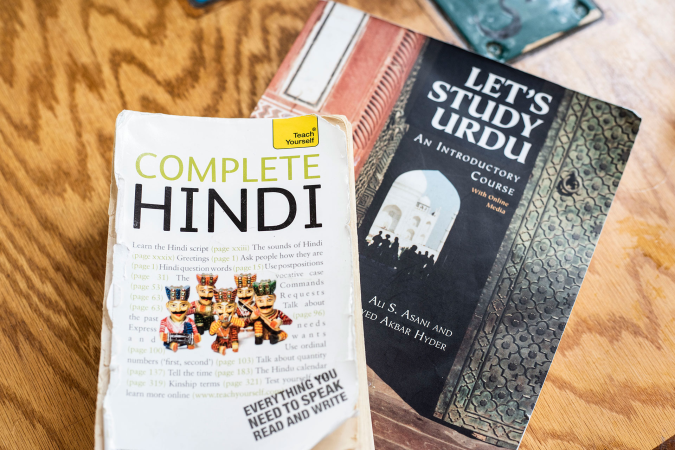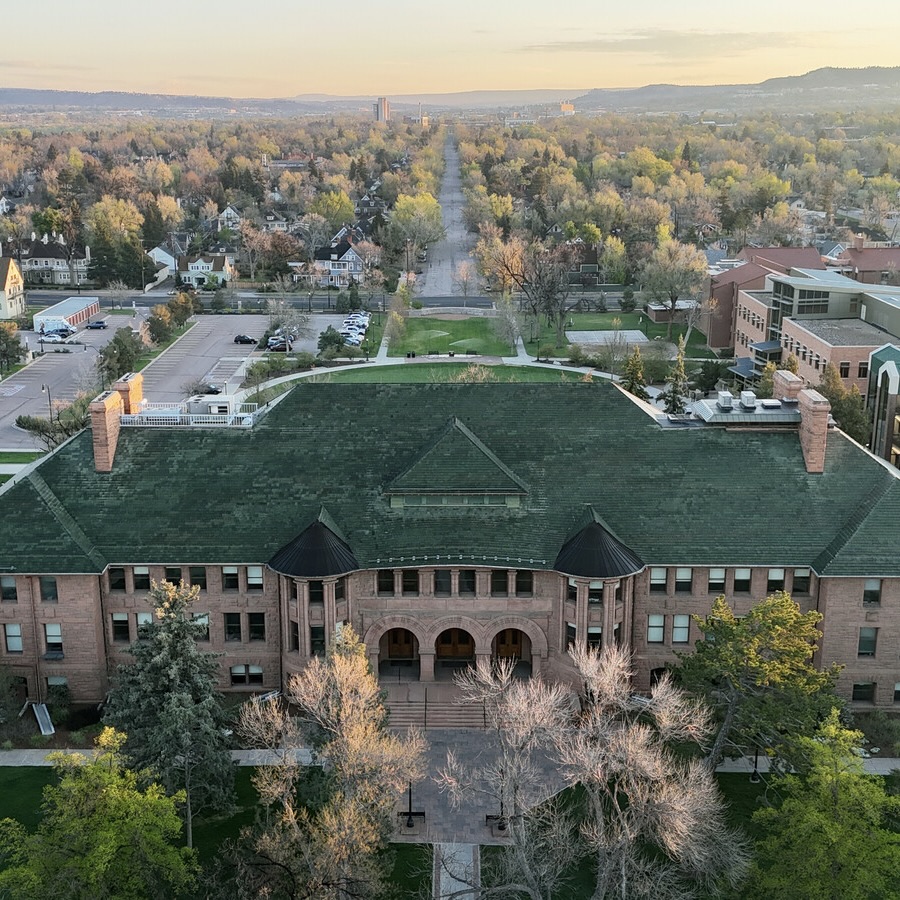
By Laurie Laker '12
"With the many global movements throughout the world today, I think it is incredibly significant, now more than ever, for all people to be aware of their own cultural biases and prejudices," says Anusha Vajrala '23, student in Colorado College's Summer Session Block A & B class, Elementary Hindi.
This summer marks the first time Hindi has ever been taught at the college, by guest instructor Nidhi Arya, of the University of Colorado Boulder.
"Every culture has its own language," explains Arya. "When you learn something about another culture (in this case language,) then it gives you more than just a positive impact; it gives you a wider base of knowledge."
Arya's love for language, especially the teaching of language, stems from her youth.
"I leaned more towards learning and teaching others because it gives me joy in a certain way. In my middle and high school, the base and common language was Hindi and I was keen to learn more languages," she says. A real love of traditional Hindustani music and dance, which are both vibrant and vital elements of the culture, emerged as well.
"Without language there is no music and without music there is no dance. I wanted to embrace my culture's second base of language - singing and dancing. When you learn these second bases of language you have a wider spectrum and understanding of the culture and the language becomes more enhanced for you," she explains.
Arya's love of music, dance, and, of course, of language, lay the groundwork for how she approached the Summer Session class at CC.
Combining in-class grammar, language, and syntax discussion and learning, supplemented by film, music, and quizzes, the class encompassed a broad introduction to the Hindi language, as well as the vast and diverse cultures that use the language on a daily basis - over 600 million people worldwide.
"The assignments were individual, but in class we had a lot more speaking practice than I've ever had in the elementary level of a language course," says Abi Walls '21.
"We listened to music and the professor sent us Bollywood movies. We had a textbook, but it was almost supplemental. Nidhi didn't use PowerPoint presentations - she sat at a white board and instructed. We had daily vocab quizzes on Kahoot. Our homework was mostly us recording ourselves speaking original sentences, or writing sentences that corresponded to the tenses or vocab we learned that day."
Daily assignments make sense on the Block Plan, but especially with a language class. Learning a language on the Block Plan is a challenge, given the amount of material that needs to be covered to gain a comprehensive grasp of the language for retention and future use. With a single block covering a semester's worth of material, a two-block class covers two semesters worth of language material in seven weeks.
"Learning a language on the Block Plan in general is hard," says Vajrala.
"A language like Hindi, where there is a completely new script, was even harder, especially with it being online. It is hard to focus on three-hour Zoom call classes, especially when you are in the comfort of your own home. Adapting took a large chunk of time, and once I was adjusted, there was only a week of class left. It was tough, but I am glad I was able to take the class."
Coming from CU, which operates on a semester structure, Arya had her own adaptation to make to a CC classroom and the pace of the Block Plan.
"I was very surprised to see how the students learned more than expected in a short period of time," she says. Fortunately, "I was already getting comfortable with online learning classes from CU."
Learning another language, engaging with the touchstones of another culture to your own - it's incredibly vital to a well-rounded education, but even more vital to being a well-rounded and engaged person. Language instruction and knowledge opens doors to the experiences of others, something that the wider world is waking up to on a daily basis as a result of current events both at home and abroad.
"Learning another language can be uncomfortable. It's unfamiliar, it takes you out of your element. With the recent international attention to the Black Lives Matter movement and to the violent policing of Black bodies in the wake of the murder of George Floyd, there are people who are confronting their white privilege for the first time. They are for the first time confronting their being complicit in a system that benefits them at the expense of people of color," says Walls.
Learning a language, such as Hindi, "takes a similar skillset, of persevering in a situation where you are uncomfortable and out of your element, in order to see things differently. In order to recognize patterns that you were oblivious to before, you have to be willing to put yourself out there to learn, even though you might make mistakes."





